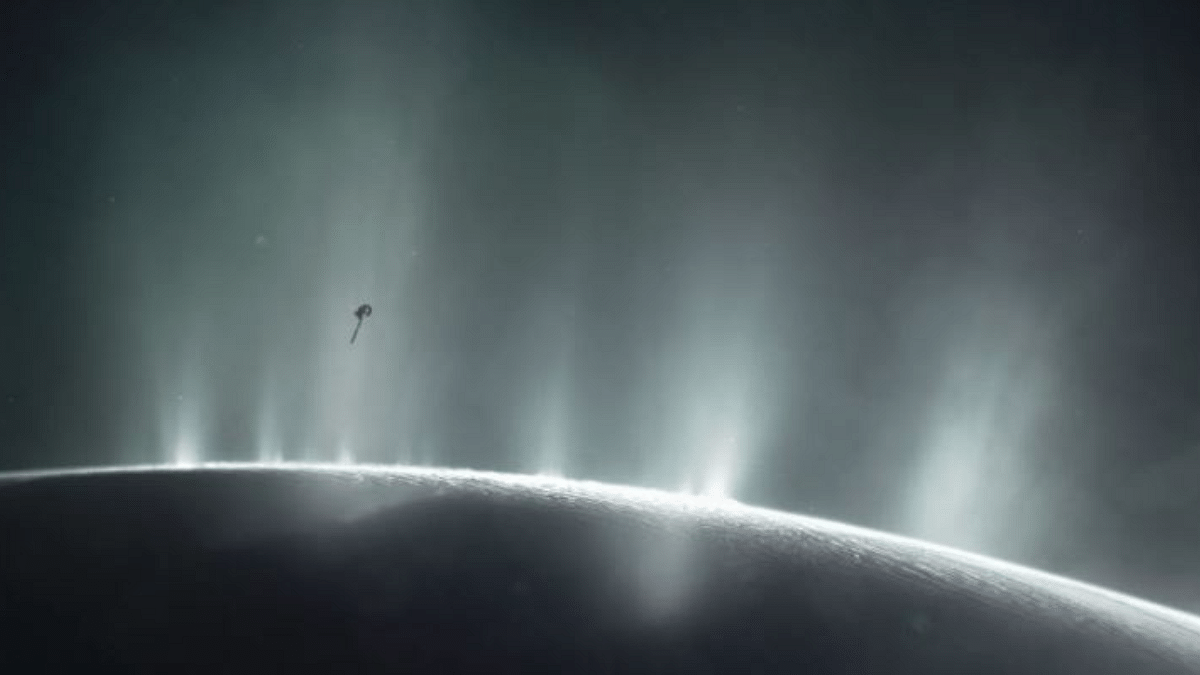A recent study has detected hydrogen cyanide, a crucial molecule for life’s creation, in the ocean of Saturn’s icy moon Enceladus. This exciting discovery adds to the growing evidence suggesting that this intriguing celestial body could harbor suitable conditions for life as we know it.
The study, published in Nature Astronomy, analyzed data from NASA’s Cassini spacecraft, which orbited Saturn from 2004 to 2017. By re-examining samples of Enceladus’ plumes, researchers identified hydrogen cyanide alongside other key molecules like methanol, ethane, and oxygen. This indicates a more diverse and dynamic ocean chemistry than previously understood.
“Our work provides further evidence that Enceladus is host to some of the most important molecules for both creating the building blocks of life, and for sustaining that life through metabolic reactions,” said lead author Jonah Peter of Harvard University and NASA’s Jet Propulsion Laboratory.
Enceladus’ Potential for Life:
- Ocean Rich in Chemical Ingredients: Enceladus’ subsurface ocean is known to be brimming with organic molecules and compounds essential for life. The detection of hydrogen cyanide further strengthens the case for its potential habitability.
- Diverse and Dynamic Ocean Chemistry: The Cassini data reveals a more complex and dynamic ocean than previously envisioned. This variety of molecules could provide the necessary ingredients and energy sources for potential life forms.
- Hydrothermal Vents: Enceladus is believed to have underwater hot springs similar to Earth’s, which could have played a crucial role in the origin of life on our planet.
- Future Explorations: With the Cassini mission having concluded, future endeavors aim to delve deeper into Enceladus’ secrets. Missions like NASA’s Enceladus Clipper will provide more intricate details about the moon’s composition and potential for harboring life.
While no life has yet been found on Enceladus or anywhere else beyond Earth, the presence of these key molecules and a potentially life-sustaining environment makes it a prime candidate in the ongoing search for extraterrestrial life.
